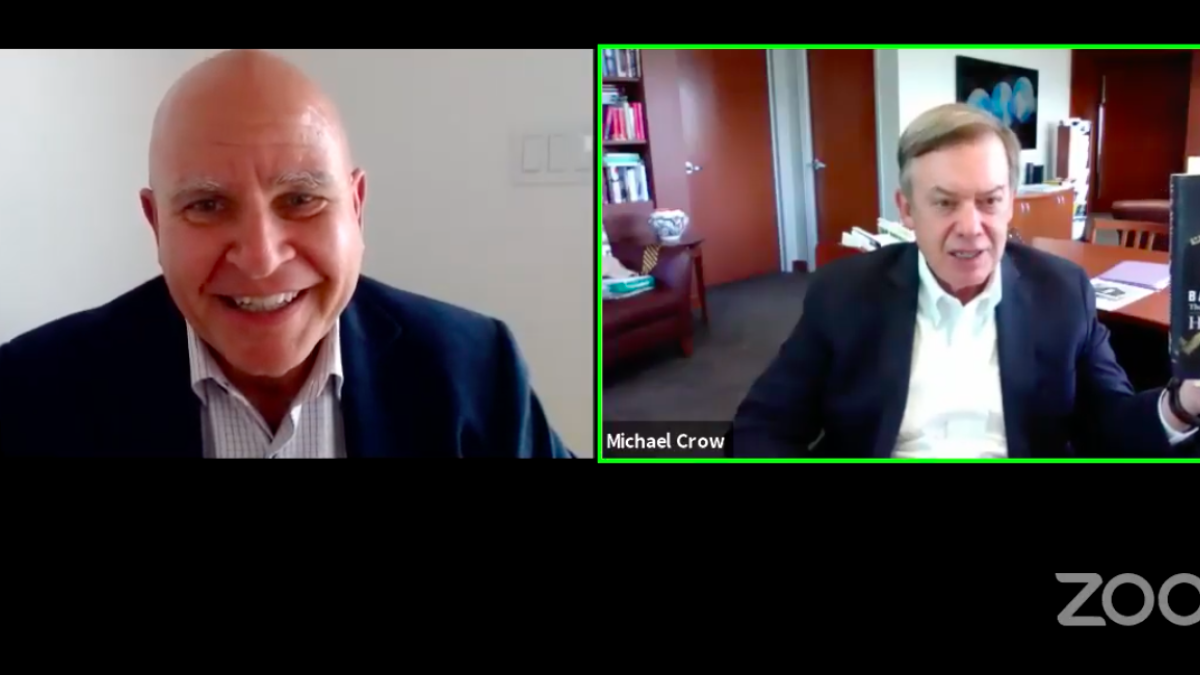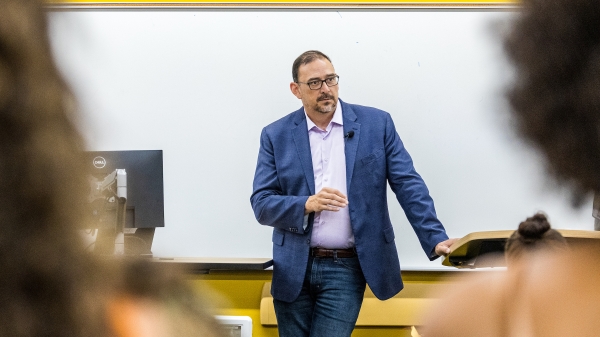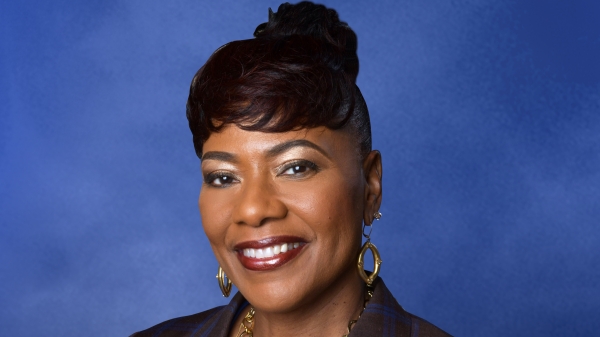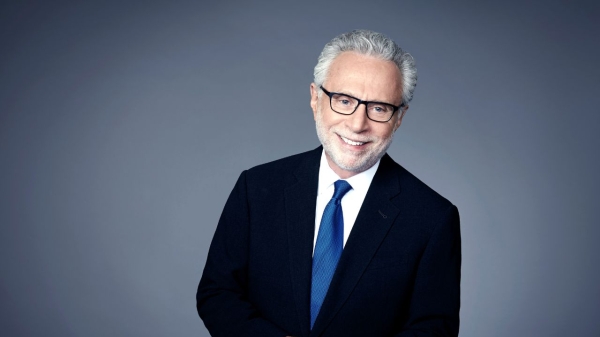Gen. H.R. McMaster, ASU President Michael Crow discuss America’s challenges and innovative strategies

On Wednesday, Gen. H.R. McMaster sat down with Arizona State University President Michael Crow to discuss McMaster's newest book, "Battlegrounds: The Fight to Defend the Free World.” Their conversation was organized by ASU’s McCain Institute and was the third installment in a series examining America’s challenges and innovative strategies for solving them.
“I came with 20 questions for you,” Crow told McMaster, former national security adviser to President Donald Trump, at the beginning of their conversation. “The first question: In general, over the past 120 years, how do you think things are going?”
McMaster said that despite unprecedented progress over the past 100 years, he is not an optimist, and he explained why he is deeply concerned about what he called the current crisis in American leadership in the world. He sounded the alarm about what he sees as several existential threats confronting the United States.
“We are, at a fundamental level, in a competition between free and open societies and closed, authoritarian systems,” McMaster said. “Our present challenge is ensuring that free and open societies remain free and open societies. We need to compete effectively to ensure that our free and open societies remain secure and prosperous and can extend our influence effectively. And we retreated from this competition, to a large degree, in the 1990s because of over-optimism, and in the 2010s because of pessimism and resignation.”
McMaster believes that future American leadership in the world should instead be guided by a concept he calls “strategic competence” — the ability to integrate all of the elements of national power with the efforts of like-minded partners to compete effectively on all fronts of engagement, beyond the use of American military power.
Crow pointed out the new book's four resolutions to describe effective management of national security problems and the National Security Council:
- Deliver optionality for national security challenges.
- Understand the natures of the problems themselves.
- Involve all government, not just the military.
- No linearity, assume quantum forces.
“These four resolutions make total sense to me," Crow said. "But when I apply them to the coronavirus, I realize: We didn’t do any of them. Not one of them, relative to the coronavirus. So, I have to assume that somebody decided that global pandemics are not a national security threat. When, of course, they are.”
McMaster said that the response to the coronavirus pandemic had many shortcomings, but chief among them was that American officials ignored what was already known about the threat.
“We knew this was a threat, we knew that we had to plan for it, and we had a team dedicated to responding to it, going all the way back to President George W. Bush,” McMaster said. “And all of that was dismantled and forgotten.”
Crow noted that this is likely not the last pandemic.
“How do we ensure that, when we learn something, it sticks?" Crow asked the general. "How do we ensure that, no matter who is president, they can’t say, ‘Never mind, I don’t believe in any of this’?"
“Well, first of all, you have to study this most recent experience, and the shortcomings of our response, and learn from them," McMaster said. "And I am working on a study right now with some students from Stanford about what we can learn from this coronavirus pandemic, and we interviewed people from across the private and public sectors who were involved in the response and asked them about what worked and what didn’t.
“And we validated three key parts of what were in the plans. One, it’s best to stop a pandemic before it starts, at its origins. We need better global surveillance and the response to contain it. Second, you have to mobilize a biomedical response. We need effective integration, coordination and sharing of data, across the entire health system and every level of government. And the third aspect is biomedical innovation. Innovation for therapies and for vaccines. So, we know what we need to do going forward.”
Crow returned to the topic of democracy and the protection of democracy at the end of the discussion.
“We have an election coming up here in this country,” Crow said. “And what happens to our democracy if a president were to say, ‘I’m not leaving’?”
“Well, the president doesn’t get to say that,” McMaster said. “That is not something I am worried about.”
The virtual discussion was part of the McCain Institute’s Authors and Insights book talk series, which invites authors to discuss their newly released books on American politics, policy or leadership.
Top image: A screenshot shows the virtual discussion between Gen. H.R. McMaster (left) and ASU President Michael Crow on Wednesday.
More Law, journalism and politics

Arizona secretary of state encourages students to vote
Arizona Secretary of State Adrian Fontes looked right and left, taking in the more than 100 students who gathered to hear him speak in room 103 of Wilson Hall.He then told the students in the Intro…

Peace advocate Bernice A. King to speak at ASU in October
Bernice A. King is committed to creating a more peaceful, just and humane world through nonviolent social change.“We cannot afford as normal the presence of injustice, inhumanity and violence,…

CNN’s Wolf Blitzer to receive 41st Walter Cronkite Award for Excellence in Journalism
Wolf Blitzer, the longtime CNN journalist and anchor of “The Situation Room With Wolf Blitzer,” will accept the 41st Walter Cronkite Award for Excellence in Journalism, Arizona State University has…